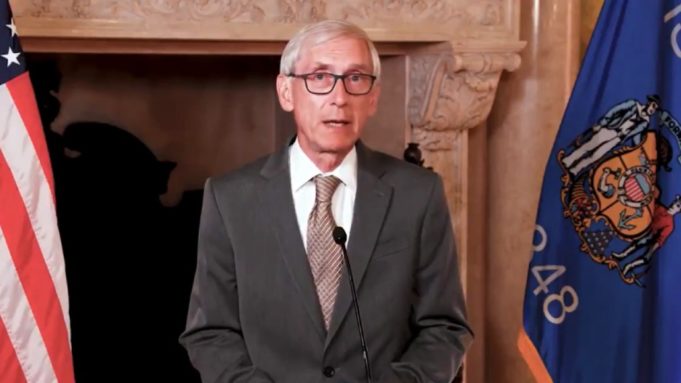From our content partner, Channel 3000.
MADISON, Wis. — Wisconsin Gov. Tony Evers is signing multiple bills into law, including one addressing police use of force, while rejecting a controversial proposal that would have reduced state aid to places that cut police funding.
Evers signed Senate Bill 120 into law Friday, making it 2021 Wisconsin Act 75. The new law deals with officer force and oversight, including creating standards for when an officer may use force and deadly force, creating a duty to report non-compliant use of force, creating a duty to intervene to prevent or stop non-compliant use of force, and creating whistleblower protections for officers who report non-compliant use of force.
The bill says using deadly force should only be a last resort.
“I am glad to sign this bipartisan bill today that provides clear use of force standards and clear requirements for reporting and intervening in non-compliant use of force incidents,” Gov. Evers said in a statement announcing the signing. “This is another step forward in creating a more equitable, just, and safer Wisconsin for every community and to ensure accountability and transparency in our law enforcement systems.”
The bill passed the legislature with bipartisan support, although some Democrats argued it did not go far enough to curb excessive use of force. Evers acknowledged that sentiment in his bill-signing message.
“Our work is far from done and we must continue to strive towards meaningful change to address the systemic injustice that plagues our state and country,” Evers said.
Other bills signed by the governor Friday address things like elder abuse (Senate Bill 17), hydrologic activity permits (Senate Bill 91), environmental audits (Senate Bill 151), and electronic waste (Senate Bill 248).
Evers rejects defunding penalty
Evers also vetoed Senate Bill 119, which would have reduced state funding to counties and municipalities that reduced its law enforcement budgets.
The bill was largely seen as targeting cities like Madison and Milwaukee, but also carried unintended consequences of hurting smaller, mostly conservative towns before an amendment was put into place exempting small departments.
In his veto message, Evers said he was rejecting the bill because of the “onerous restrictions” it would have imposed on the ability of local governments to set their budgets.
“Rather than help with the fiscal constraints that local governments are experiencing, this bill seeks to micromanage local decision-making,” Evers argued. “Local governments and local elected officials are well-positioned to make informed decisions about what is best for their communities and how to meet the needs of the people they serve and represent.”




























